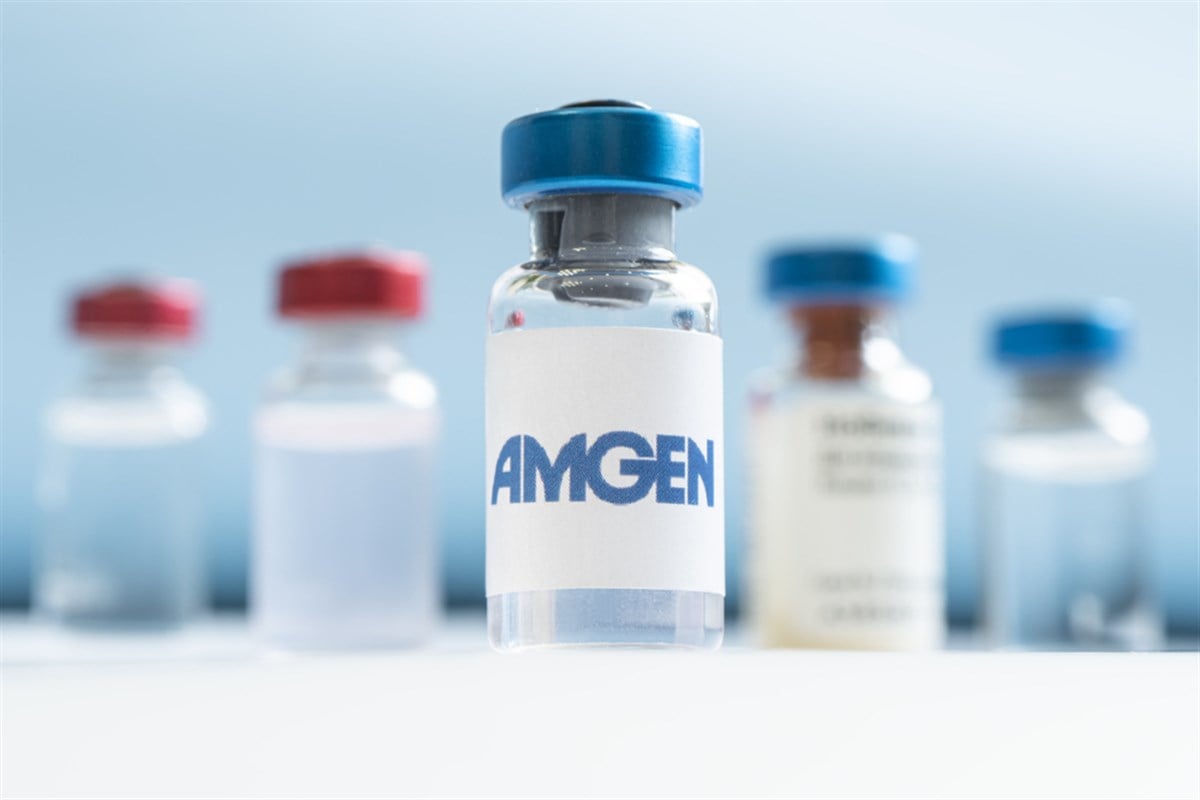
Amgen (NASDAQ: AMGN) recently released clinical results for its developmental weight loss drug MariTide. Shares fell by as much as 12% the next day. However, they did recover, leaving the company with only a 5% one-day loss. This decreased Amgen's value by $8 billion.
The fact that these Phase 2 Food and Drug Administration trial results had such a massive impact on Amgen’s value is telling. It shows the importance markets are placing on weight loss drugs for pharmaceutical companies competing in that arena. It highlights that this is an important topic to understand. Below, I’ll break down the MariTide results and explain their meaning within the broader weight loss drug landscape.
MariTide: Weight Loss Fails to Beat Zepbound
Amgen's share price fell mainly because MariTide didn't beat Eli Lilly's (NYSE: LLY) Zepbound in weight loss efficacy. The results showed that people with obesity taking the drug lost an average of 20% of their weight after 52 weeks. Zepbound achieved approximately 21% weight loss in 48 weeks.
However, it did beat out results from Novo Nordisk’s (NYSE: NVO) blockbuster Wegovy, which saw patients only lose around 15% of body weight after 52 weeks. Another positive, in comparison to Wegovy, is that Maritide did not exhibit a weight loss plateau. This indicates that further weight loss could occur after 52 weeks.
MariTide’s Key Differentiators, Positive and Negative
There are other key differences between MariTide and the other two treatments. First, patients administer MariTide monthly or less frequently, while they administer Zepbound and Wegovy every week. This is a key advantage for MariTide, as it provides a more convenient option for patients. This is especially true considering that patients must inject these treatments, a process many lament.
Additionally, in a special call about the results, Amgen's executives said they saw similar efficacy when dosing once every two months as they did when dosing once every month. Based on this, MariTide may be able to achieve similar efficacy to Zepbound but with eight times less frequent dosing. The next part of the study will investigate administering the treatment once every three months. If efficacy holds, this could make dosing 12 times less frequent than Zepbound. Presently, this is the largest and most significant advantage MariTide has.
A key negative difference is that MariTide resulted in higher instances of discontinuing treatment due to side effects. Overall, 11% of patients discontinued their participation in the study. For Zepbound, that figure reached a maximum of 7%, depending on the dose. Wegovy also reported a 7% figure. This is a clear disadvantage for MariTide, showing the drug is measurably less tolerable than what is currently available.
Another key point is the strong cardiometabolic results from MariTide. It improved blood pressure, triglycerides, and other parameters. This gives another reason why the drug could attract potential patients. Lastly, no association was found with bone mineral density. This was a concern brought up by a Cantor Fitzgerald report. They uncovered data the broader analyst community missed in the Phase 1 results for MariTide. The news sent shares down 7% when the report came out. Given the much larger sample size in the Phase 2 study, this new data should put those concerns to rest.
Amgen’s Fall May Be Exaggerated But Isn’t Surprising
Overall, MariTide performed admirably compared to weight loss drugs currently available. Although its weight loss did not surpass Zepbound's, the drug maintained its key advantage: less frequent dosing. Additionally, the lack of a weight loss plateau leaves the door open to surpassing Zepbound’s 22% weight loss after 72 weeks as more research is done.
The high discontinuation rate is concerning, but the cardiometabolic data lessens this. Amgen shares have continued to drop despite being below their level after the Cantor Fitzgerald report. This shows that the company doesn’t seem to be getting any credit for dispelling the bone mineral density concerns that sent its shares plummeting.
Despite all this, investors are understandably concerned. MariTide did not raise the stakes on efficacy. It really is relying on the less frequent dosing at this point to differentiate itself. This is a highly competitive drug market with many developmental treatments coming down the pipe. The drop in Amgen’s shares feels overblown. But, the results are not strong enough for me to believe that Amgen will have the next weight-loss blockbuster. Seeing success in quarterly dosing, decreased discontinuation, and increased weight loss over time could change the narrative.
